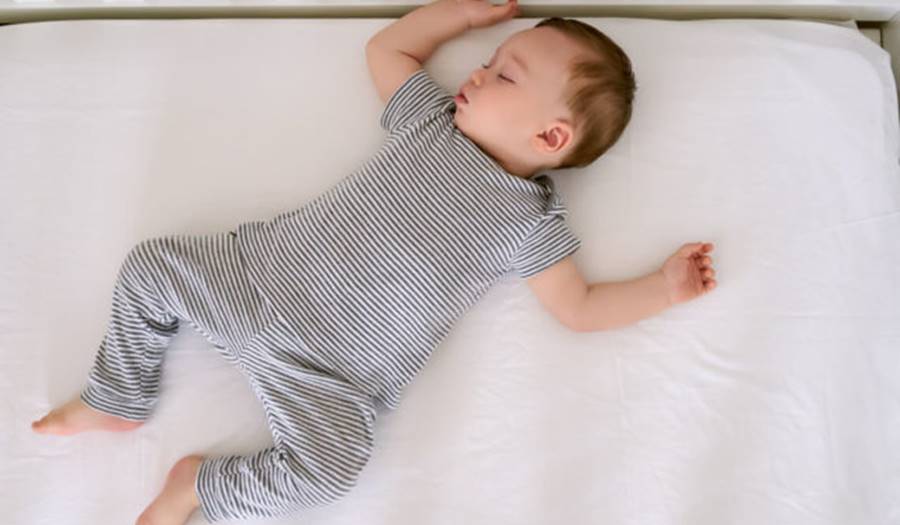
Nightime Sleep
11/2/2020
HELPING YOU AND YOUR BABY BE WELL RESTED
One topic that all parents and soon-to-be parents worry about is sleep! When you are expecting a baby people will often tell you to enjoy sleep now, because it won’t happen after you have a baby! That is not true!
This article is the first of three devoted to sleep! In this article we will discuss how to help your baby sleep at night. We will be focusing on the foundations of good sleep and gentle methods that can help your baby sleep. And if you have an older baby who is not sleeping, it is not too late! Babies are constantly changing and so can their sleep and your family routines.
In the coming weeks, we will discuss napping and troubleshooting sleep issues.
Why is sleep important?
Sleep is essential to everyone no matter your age. It is important for physical and mental well-being. Sleep deprivation is used on Prisoners of War as a form of torture because of how it affects brain function.
It is essential for our brains to sleep. Growth hormone is secreted during sleep which means sleep is needed for growth. Because children are growing so fast, it is important for children to get quality sleep. During sleep, your body also strengthens the immune system and your brain “cleans” itself up.. Additionally, sleep is important for development and children are rapidly developing physically, emotionally, and cognitively.
Do you know that poor sleep can result in:
• Deficits in attention and alertness (this can mimic ADHD)
• Deficits in cognitive performance
• Difficulty regulating mood
• Decreased resiliency
• Decreased vocabulary acquisition
• Learning and memory problems
• Decreased growth, especially during infancy
• Decreased memory consolidation (especially in toddlers)
• Delayed motor skill development
• Increased risk of allergic rhinitis
• Increased risk of immune system problems
• Increased risk of anxiety and depression
• Increased risk of chronic illness including obesity, diabetes, and high blood pressure
We all want our children to grow and thrive and sleep is an essential ingredient. Did you also know that sleep is super important for parents too! Decreased sleep for parents results in an increased risk of postpartum depression and anxiety, mental health issues, and increases marital strife. Our current culture has glamorized sleep deprivation for parents. You want to be the best parents to your child and your sleep is important so that you can be well rested, fully present, and have the capability of parenting your child in the style that you choose. We often lose sight of ourselves when we become new parents, but we need to realize you are the foundation on which your child is being raised. A strong foundation is always the best foundation. That means prioritizing sleep for your child must include prioritizing sleep for you.
Sleep Foundations
Safe Sleep
The hallmark of a good sleep foundation is Safe Sleep. Safe sleep reduces the risk of Sudden Infant Death Syndrome (SIDS). The rules of Safe Sleep are:
• Your baby should have their own safe bedspace either a crib, bassinet, or co-sleeper
• Their sleeping space should be a firm, flat surface
• Room sharing is encouraged but not bedsharing
• Back to sleep—only put your child back to sleep but once they roll on their own, they can CHOOSE to go onto their belly. We continue to place them on their back until 12 months
• No loose bedding, blankets, bumpers, pillows, or stuffed animals
• No loose swaddles—use swaddles with Velcro or zippers
• Stop swaddling once your baby can roll
• No bows/headbands, or necklaces while sleeping
• Crib on the lowest setting once your child is working on sitting
• Cool environment
• If your child is asleep in their car seat outside of the car, they must be buckled in and watched closely
• Your baby should never sleep in a rocking type seat when not being watched
Newborns
Often newborns have their days and nights confused. This is hard at the beginning since adults are used to consolidated sleep at night When our bodies can’t make it through a full adult sleep cycle (about 3-4 hours), we can feel the effects of sleep deprivation. We know to expect this, but it is important to know it doesn’t have to last for months or years!
From birth until 4 to 6 weeks infants can sleep for up to 14 periods a day! Newborns need to eat every 1-3 hours including during the night. At this stage it is important to feed your baby, responding to all hunger cues, and spend time bonding with your baby. It is totally appropriate to hold your baby all day and it is totally appropriate to need to put your baby down sometimes.
Newborns can only stay awake for 45-60 minutes including feeding and diaper changes. A newborn that is overtired from being awake too long may actually have a hard time sleeping and may appear to be in pain. It is important to help your baby get to sleep by soothing him or her by holding, snuggling, rocking, or use a carrier (if your child fits size requirements). This is actually important for future sleep skills and you are NOT spoiling your baby.

Newborns also have a “Witching Hour” of fussiness. This is usually between 5pm and 11pm. It starts around 2-3 weeks of age, peaks at 6 weeks of age, and resolves usually by 3 months of age.
If you are in the Witching Hour or your newborn is overtired here are some tips for helping them fall asleep:
• Water—you can give your baby a nice warm bath or shampoo just their hair
• Get outside or change your environment
• Decrease stimulation
• Use motion including swings, bouncing on a ball, walking or using a stroller
• Cluster feed if they seem to want to feed frequently
You can help your newborn develop a good sleep foundation by
• Preventing overtiredness
• Providing a bright, interactive environment during the day
• Avoiding over stimulation
• Providing a dark environment at night including dim light for feeds and diaper changes
• Providing full and frequent feeds
Once your pediatrician gives you the ok, you can let your newborn wake you up at night During these first few weeks, longer stretches of sleep may or may not happen. If they do happen, they tend to be inconsistent. One night your baby may be up to feed every 2 hours and the next night your baby sleeps for a 5 hour stretch. Of course, the first time that happens normally you wake up in a panic or wake up with engorged breasts if you are a nursing mom. If you are nursing, pump to get “comfortable” but not a full feed. And know that this is normal, try to slow your racing heart down and hopefully fall back asleep (and we all agree as new parents that first long stretch of sleep is both wonderful and terrifying).
Of note, it does NOT matter what and how you feed your baby: at the breast, breastmilk from a bottle, or formula. Studies shows that no matter how babies are fed, the rates of babies sleeping through the night is exactly the same for all three groups. Make your feeding plan on what works best for your family and baby and don’t worry about how it will impact sleeping.
There is also NO research that shows adding cereal to a bottle will help your baby sleep longer. It can actually result in an upset stomach and increased gas, both of which increase night awakenings. Studies also show that feeding your baby more right before bed does NOT help them sleep longer. The overall number of calories in the day is more important. More on that later.
Infants and Toddlers
Infants older than 2 months can possibly sleep through the night meaning 8-12 hours. This depends on YOUR baby, their development, and their growth. We do not want to ignore hunger cues at night. Babies who are advised by their pediatrician to continue night feeds, moms who might have milk supply issues, and children with medical issues or on certain medications may need night feeds. We also do not want to suddenly stop all night feeds for younger infants. A gradual spacing of feeds takes time but can be a gentle method of eliminating night feeds. Also, if you are a nursing mom, this will make sure night feed elimination does not decrease your supply.
Routine:
Babies as young as 8 weeks can start to recognize a bedtime routine. Having a bedtime routine helps prepare your child for sleep. The routine does not need to be long. You can include any activities in your routine, but it is important to keep the steps of the routine the same.
Part of your routine can actually start in the afternoon. Babies also sleep better if they have exposure to afternoon light. This helps signal to the body that bedtime is approaching. If your baby needs that short afternoon nap to make it to bedtime, this can be a great time to talk a walk outside before starting your night routine.
A bath before bed can also be part of your routine. It is a strong cue that bedtime is starting. Also, it helps promote sleep by causing blood vessel dilation. This changes your body temperature, cueing your body that it is time to sleep. For a few kids, baths provide them with extra energy which is not something you want before bedtime. If that is your child, move bath time to an earlier time in the day.
Routines should mostly take place in your child’s sleeping space. It can include reading books, rocking, snuggling, feeds, or singing a song. As your routine winds down, the lights should be dim. The routine ends with placing your AWAKE but DROWSY child into their crib or sleeping space. You can also use any sleep aids on the side to help your baby achieve sleep.
Bedtimes for babies under 4 months can vary. Some babies naturally get tired from 7-8pm but others have a sleep window between 8-10pm. Babies over 4 months and toddlers have a circadian rhythm that readies them for sleep between 7-8pm. This time is called the sweet spot of sleep. Babies and toddlers that go to bed during this time fall asleep the easiest and stay asleep the longest.
You do not need to pick a strict time but aim for a window of 30 to 45 minutes. The window may change depending on how the day went. If your baby is cranky, refused their last nap, or didn’t have great naps during the day you may even need to move that time earlier. Also, babies that all of a sudden start waking up early in the morning may need an earlier bedtime. It sounds counterintuitive but it works to help extend sleep.
Day Time Calories
In order to eliminate night feeds and to help your baby sleep through the night, the first step is to focus on your child getting their calories during the day. This means your child should eat every 2-4 hours, never longer than every 4 hours during the day. This is not a strict schedule, always respond to your baby’s hunger cues.
We also want to make sure babies are taking FULL feeds. Full feeds result in better growth, a content baby, easier to identify hunger cues, and an improved milk supply. If your baby uses a bottle to feed, make sure the nipple size is appropriate. A too small nipple will result in a long feed or reduced intake due to the difficulty of feeding. For nursing babies and bottle-fed babies, as your baby gets older, they get more distracted during feeding. If your baby is distracted, take them to a quiet, dim room to help them concentrate on their feed.
To help your baby take full feeds, you should keep them awake during feeds. You may need to help uncouple feeds from sleep and make sure feeds are done earlier in your child’s awake time or separate it from bedtime with a part of your bedtime routine A baby that dozes during a feed will often use that as a refreshing nap and reset their awake cycle. If you feed your baby to sleep at bedtime and they wake up 45 minutes later, that is a sign that they used the feed as a nap. This will disrupt their night sleep.
You also want to make sure you feed your baby ONLY when they are hungry. Babies will cry for other reasons that are often not hunger. We want you to comfort your child. But meeting those needs with food results in “grazing”, decreased milk supply and growth as well as disrupts sleep. It is also making the association between comfort and food. they are upset. For younger babies that need cluster feeds before bed, these feeds are usually shorter but only happen during a few set hours and only in younger babies.
Dream Feed
Some babies can make it a long stretch at night 6-8 hours but not to morning if put to bed at 7 to 8pm. Some of these babies naturally wake up 2-3 hours into their night sleep to take a feed, around 9-10pm, then sleep through the rest of the night. Other babies wake up in the middle of the night. If your baby does that, they may benefit from a “Dream Feed”. This is a feed initiated by YOU. It takes place like a normal feed (never feed your baby in their crib or bassinet in a reclined position as this can cause choking and increase the risk of ear infections) in a dim room with minimal interaction and a diaper change only if needed. Some babies will be awake during this feed and some will eat while drowsy (hence the term dream feed). Some babies do very well with dream feeds and it extends their sleep so their longest stretch is while their parents are sleeping and at the normal physiological time that most infants have their longest stretch of sleep. Only use it if it helps your family and your baby. Most babies don’t need or can stop the dream feed between 6 weeks and 8 months! That’s a big range! Signs that your baby is ready to stop the dream feed includes if your baby ends up awake for a long period, they don’t take a full feeding, or they aren’t sleeping longer.

Sleep Skills
Sleep Skills are learned! Some babies learn them faster and some babies take a bit longer to learn them. The only way to learn is through practice! If your baby can sleep a 6-8 hours stretch, they already have some self-soothing skills. Everyone wakes up in the middle of sleep cycles, even adults. Sometimes we remember it, we look at the clock, and go right back to bed; sometimes we are unaware that we do this. Your child should also fall asleep where they will wake up. If they fall asleep in your arms, it is unsettling to wake up in a different setting and they are more likely to need assistance falling back to sleep.
At least 80% of babies needs to learn to self-soothe in order to enter the next sleep cycle. If a baby is used to being rocked to sleep or fed to sleep, they will require this to enter the next sleep cycle. A lucky 20% of babies can actually get rocked or fed to sleep and transition through sleep cycles. It is better to err on the side of caution and assume you are the 80%! Learning how to self-soothe is an important skill!
Newborns have few self-soothing skills, but as they get older and more mature, they will be able to develop these skills. We have to help our child develop self-soothing skills. Options include patting, talking, or singing to them as they are trying to fall asleep in their crib. You can offer a pacifier as long as you do not need to replace it later on in the night. This process doesn’t need to involve “cry it out”. There are MANY methods of helping your child develop these sleep skills. If you have seen the section of a bookstore for sleeping books, you know there are hundreds of books with many styles. There is not magic formula but one key ingredient: CONSISTENCY. You should have a plan with your partner, and together should agree on what you are comfortable in terms of method and your plan to develop these skills
The key to teaching self-soothing is to:
• Avoid an overtired baby
• Make sure your baby’s last nap of the day happens (especially for infants less than 6 months old) even if it requires a carrier or movement
• Keep a consistent bedtime routine
• Keep a consistent sleep schedule
• Know your babies sleep cues
• And above all else maintain consistencyv
• Practice, practice, practicev
o Practice at night can be hard due to parental fatigue so have a plan in place…No good plan is every made at 2am!
o Night sleep consolidates first so it may be easier to work on night skills on younger infants
o Try practicing soothing during their first nap, this nap often is the easiest for babies in terms of falling asleep, which makes it a great time to practice
o Aim for 1 nap a day in their crib or bassinet
Sleep Aids
Sound Machine
Newborns are not used to silence, the womb is 72-88 db. A sound machine can help mimic the womb. It can also help drown out household noises for older children. It should be 6-8 feet away from your child and less than 72 decibels (you can measure decibels using an app on your phone). The AAP recommends using the lowest effective volume.
Darkening Shades
Room darkening shades help all babies sleep better. Light stimulates your body and suppressed melatonin. Babies that nap and sleep in a very dark room (you should not be able to see your hand extended in front of you) have better quality sleep. They also transition to rooms with light (such as when you are on vacation) more easily.
Swaddle
Babies sleep better when swaddled. This reduces the startle reflex. Often your baby may seem to fight the swaddle but often after 1 minute will relax and become comfortable. It is important to stop swaddling once your baby can roll over.
Pacifier
You do NOT need to give your child a pacifier but if they enjoy a pacifier it can be soothing and help some babies sleep. It only becomes problematic if they awake every time it falls out of their mouth.
Cool Room
A cooler room helps promote sleep. There is no right temperature but should be comfortable to you. Your child should wear similar clothing to what you are comfortable in. Babies hate being hot and it increases the risk of SIDS.
Raising children is challenging. Ensuring that you make healthy sleep a priority for your family is important to help you be the best parent to your child and the best partner to your significant other. Starting your baby off with a strong sleep foundation helps make your child into a champion sleeper and can help with any future sleep issues! Next week, we will tackle napping! How naps change over time, how we can help our children have longer naps and reduce their naps as they grow older.
Children’s Health Care of Newburyport, Massachusetts and Haverhill, Massachusetts is a pediatric healthcare practice providing care for families across the North Shore, Merrimack Valley, southern New Hampshire, and the Seacoast regions. The Children’s Health Care team includes pediatricians and pediatric nurse practitioners who provide comprehensive pediatric health care for children, including newborns, toddlers, school aged children, adolescents, and young adults. Our child-centered and family-focused approach covers preventative and urgent care, immunizations, and specialist referrals. Our services include an on-site pediatric nutritionist, special needs care coordinator, and social workers. We also have walk-in appointments available at all of our locations for acute sick visits. Please visit chcmass.com where you will find information about our pediatric doctors, nurse practitioners, as well as our hours and services.
Disclaimer: this health information is for educational purposes only. You, the reader, assume full responsibility for how you choose to use it.








